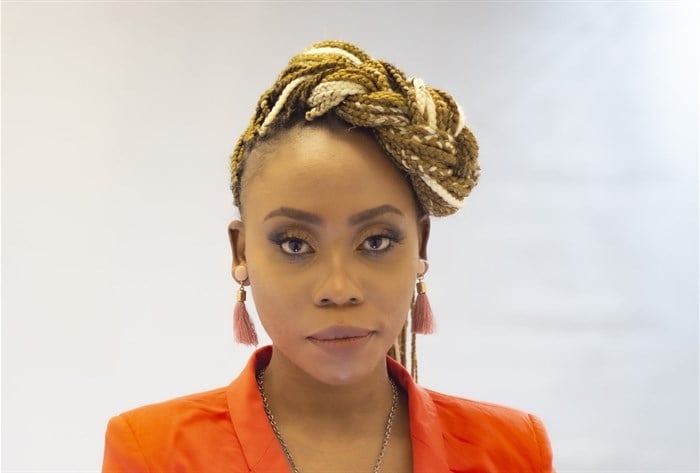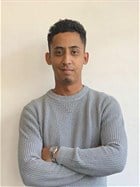#WomensMonth: Yaliwe Soko, chair of the United Africa Blockchain Association

She sees education as the primary driver to adopting the opportunities in blockchain technology. As a qualified training facilitator and assessor, she is actively involved in driving Africa’s adoption through education and training campaigns such as Uaba’s Reach 1 Million for Blockchain Campaign and Train the Trainer Initiative.
Passionate about technology’s ability to greatly benefit financial inclusion and women empowerment, she founded Umoja a community-based lending platform to help women access capital at minimal interest, and a marketplace for them to sell their products with ease and greater reach.
Tell us more about your career journey and yourself
Soko: My name is Yaliwe Soko, and I am currently the South African Ecosystems lead at cLabs, working on Celo, a mobile-first Blockchain solution whose mission is to build tools that create the conditions for prosperity for everyone.
I chair the United Africa Blockchain Association and I am a serial entrepreneur.
My career started back in 2016: I had no technical background but I had always wanted to study IT. Since I couldn’t afford it I became employed at a very young age. I first worked as a medical chairside assistant, then worked in operations, and lastly in the oil and gas industry before going into the Blockchain sector full time.
How did you establish yourself in the blockchain sector?
Soko: I first started by creating YouTube tutorials on how to use cryptocurrency exchanges. Through this, I then started developing a blockchain curriculum to aid my understanding of Blockchain. With the help of the learner guide, I started a meetup group called Johannesburg Women In Blockchain. During the meetups, we would discuss opportunities and possibilities in Blockchain.
Before long, I started receiving invitations to speak at numerous Blockchain events - both locally and internationally - and this exposed me to multiple people and opportunities in Blockchain. This led to co-founding Uaba to foster Blockchain education and awareness in Africa. Uaba runs many free training courses, some of which are underway right now.
In April 2020 I joined cLabs to work on Celo which is enabling me to bring real usability and Blockchain solutions to the people. These range from combating climate change to enabling access to credit and harnessing blockchain for microfinance or healthcare.
What prompted you to create Essence Crypto Consultants and Ethereum Foundation Devcon Alumni?
Soko: I wanted to share my know-how and advisory with people and organisations interested in Blockchain solutions. However, I decided to put Essence on hold and focus on Uaba, because I believe there was a greater need for education than profit.
Regarding the Ethereum Foundation, I won a scholarship to become a Devcon scholar for the Ethereum Devcon 5 in Osaka, Japan. I emerged as the top learner out of more than 50 scholars from around the world and I was crowned Ethereum Devcon Queen in 2019.
You started a lending platform for women called Umoja. Tell us more about this and the motivation behind it.
Soko: Umoja was born from the fact that a lot of women in South Africa are heading households and, due to the high cost of living, they can barely meet their monthly expenses. This has brought about a rise in borrowing from loan sharks at high interest rates and under dangerous conditions. Umoja is set to be built on the Celo blockchain and it will enable women to borrow and lend money at minimal cost, in a safe manner, in the comfort of their environment. Umoja was shortlisted by UNICEF Innovation last year.
What advice do you have for women wanting to enter the blockchain sector?
Soko: The most important thing is to start, anywhere! It is also beneficial to get yourself a mentor. There is a need for more women in this space. Never stop learning; there are so many exciting opportunities in blockchain and you don’t really need to have technical skills to get involved.
Take us through a day in the life of Yaliwe Soko
Soko: My day is quite unpredictable but it always starts with a cup of coffee. If I am not working from home, I head to the office. My day usually consists of meetings and brainstorming sessions, sometimes interviews and content production. My day usually ends late in the evening followed by a glass of wine :)
What do you think can be done to break down barriers that prevent women from professional development?
Soko: Gender roles must be redefined: there are no roles for men and women in the workplace. This redefining should also start from the homes. Girls can play and experiment with cars too, they are not boy’s toys but children’s toys. Career advancement opportunities should also be available to women in the workplace and women should be encouraged to take on leadership roles.
What do you think can be done to address the pay disparity issue for women in Africa?
Soko: Men should be educated about the fact that allowing a woman to earn the same amount of money as a man in her position does not take away from their masculinity. A lot of organisations are using women for diversity statistics and not truly empowering us. Women should also be encouraged to ask for and demand equal pay. We are all doing the same work, why should the pay be different? Why should I accept less?
Since we are celebrating Women’s Month, what words of encouragement do you have for women?
Soko: You are capable of becoming the best version of yourself; never settle for less. If you believe, you can do it.







































